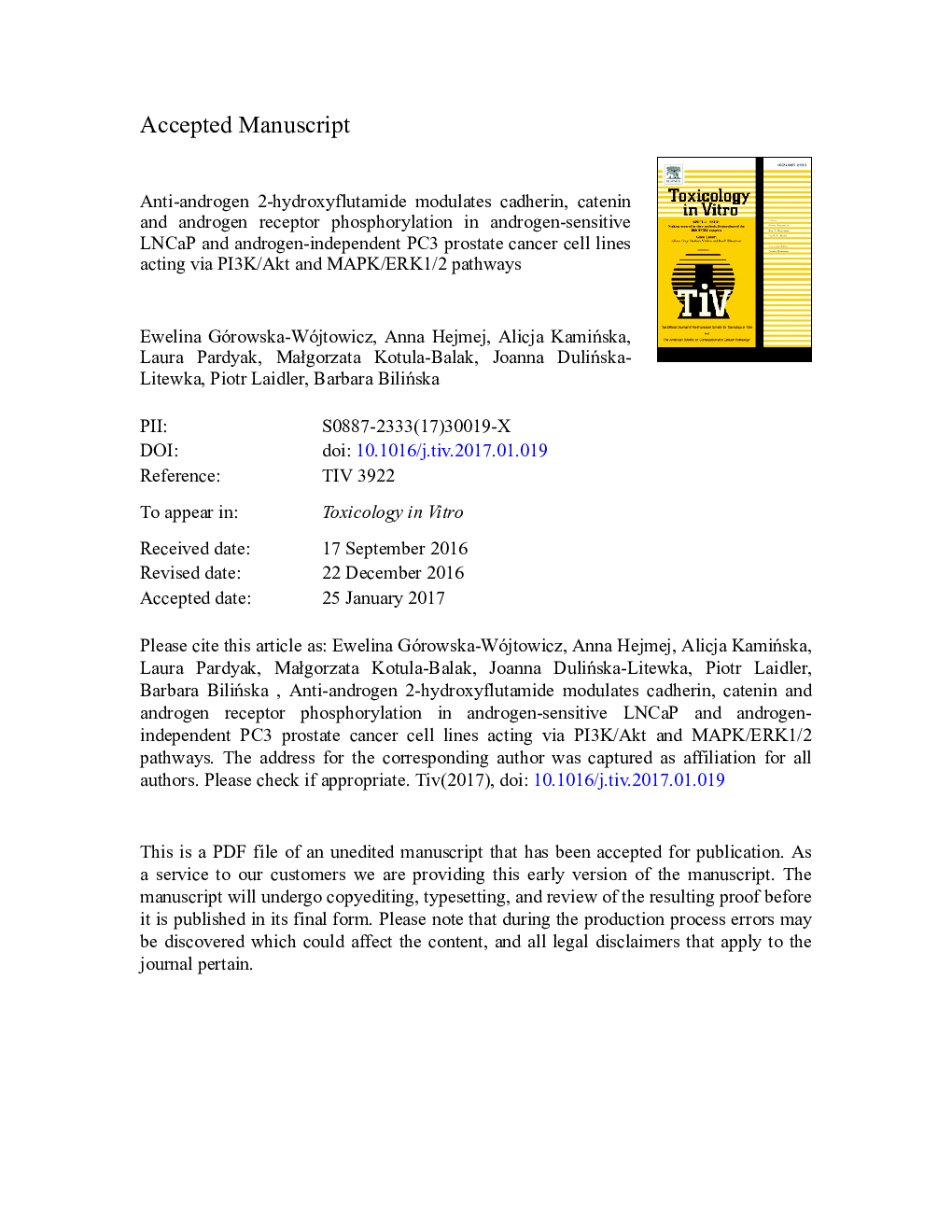| Article ID | Journal | Published Year | Pages | File Type |
|---|---|---|---|---|
| 5562718 | Toxicology in Vitro | 2017 | 44 Pages |
Abstract
This study aimed to investigate rapid effect of anti-androgen 2-hydroxyflutamide (HF) on cadherin/catenin complex and androgen receptor (AR) phosphorylation in prostate cancer cell lines. In addition, a role of PI3K/Akt and MAPK/ERK1/2 pathways in mediating these effects was explored. We have demonstrated that in androgen-sensitive LNCaP cells HF induced rapid increase of E-cadherin phosphorylation at Ser 838/840 (p < 0.05) in MAPK/ERK1/2-dependent manner, whereas phosphorylation of β-catenin at Tyr 654 was unchanged. Concomitantly, the reduction of the level of AR phosphorylated at Ser210/213 was found (p < 0.01). In androgen-independent PC3 cells HF decreased Tyr 860 N-cadherin and Tyr 645 β-catenin phosphorylation (p < 0.01), acting via both MAPK/ERK1/2 and PI3K/Akt pathways. Further, we evidenced that MAPK/ERK1/2 and PI3K/Akt pathways were differentially influenced by HF in LNCaP and PC3 cells. In LNCaP cells, both Akt (p < 0.01) and ERK1/2 (p < 0.001) phosphorylation were negatively regulated and this effect was mediated by Raf-1 (p < 0.05). In contrast, in PC3 cells HF stimulated Akt (p < 0.001) and ERK1/2 (p < 0.001) activation, but had no effect on the crosstalk between PI3K/Akt and MEK/ERK1/2 pathways at the Raf-1 kinase level. Our findings expand the role of anti-androgen into non-genomic signaling, creating a link between anti-androgen action and phosphorylation of adherens junction proteins in prostate cancer cells.
Related Topics
Life Sciences
Environmental Science
Health, Toxicology and Mutagenesis
Authors
Ewelina Górowska-Wójtowicz, Anna Hejmej, Alicja KamiÅska, Laura Pardyak, MaÅgorzata Kotula-Balak, Joanna DuliÅska-Litewka, Piotr Laidler, Barbara BiliÅska,
